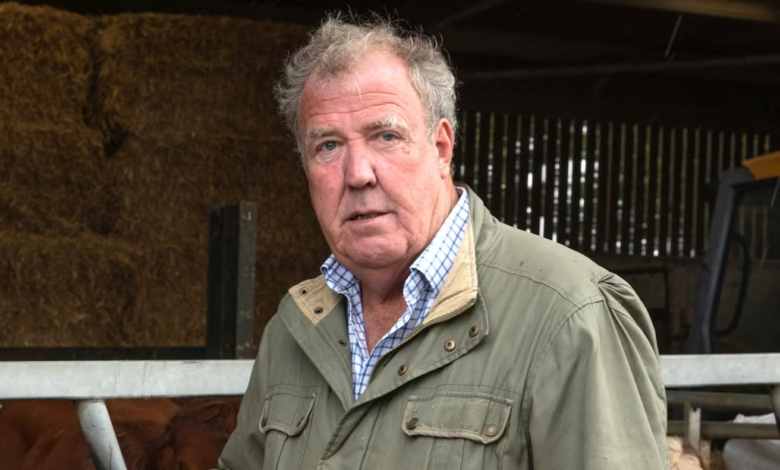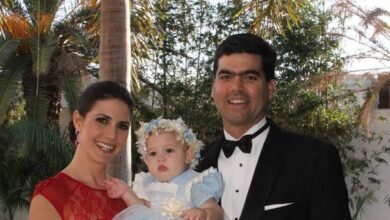Jeremy Clarkson: The Unstoppable Journey of a Motoring Maverick

Few television personalities have left as powerful an imprint on popular culture as Jeremy Clarkson. Loud, witty, rebellious, and unapologetically outspoken, he became a global icon through his love of cars and his refusal to conform. But behind the roaring engines and cheeky one-liners lies a complex man — a storyteller, entrepreneur, writer, and provocateur whose career has been as unpredictable as the cars he drives.
This is the story of a man who went from modest beginnings in Yorkshire to the world stage — a journey filled with speed, controversy, humor, and transformation. The name Jeremy Clarkson doesn’t just represent a TV host; it symbolizes an entire era of entertainment.
Early Life and a Love for Machines
Jeremy Charles Robert Clarkson was born on April 11, 1960, in Doncaster, South Yorkshire, England. His father, Edward, was a travelling salesman, and his mother, Shirley, was a teacher and talented craftswoman. The family’s fortunes were modest, but they were creative and hardworking.
Clarkson’s love of cars started young. Stories suggest he was already fascinated by engines long before he could drive. Yet, his childhood wasn’t without challenges. He attended several schools, including the prestigious Repton School, where he earned a reputation for being mischievous, outspoken, and occasionally rebellious. These qualities, which got him into trouble in school, later became the very traits that defined his career.
After leaving school, he dabbled in journalism, writing for local newspapers. This period taught him the power of words — and how humor could turn an ordinary article into something people wanted to read. Though he didn’t know it yet, those early writing gigs were steering him toward the highway of fame.
The Road to Fame — From Reporter to Television Star
Clarkson’s career took off in the 1980s when he began writing motoring reviews. His unique voice — equal parts informative, sarcastic, and entertaining — quickly caught attention. He didn’t just describe cars; he gave them personality. He made readers laugh while teaching them something new.
His big break came when he joined the BBC’s Top Gear in 1988. At the time, the show was a straightforward motoring program. But Clarkson had bigger ideas. He transformed the way people saw car shows, injecting energy, comedy, and drama. He treated cars like characters and viewers like friends.
By the early 2000s, Top Gear was reinvented with Clarkson at the helm alongside Richard Hammond and James May. Together, they created a show that combined high-speed challenges, spectacular cinematography, and cheeky banter. It wasn’t just about cars anymore — it was about adventure, friendship, and freedom.
Their chemistry was magic. Audiences around the world tuned in, not only for the cars but for the laughter, the chaos, and Clarkson’s fiery personality.
The Rise, the Risks, and the Roar
With fame came fortune — and controversy. Jeremy Clarkson became a cultural force. He was fearless with opinions and unfiltered with humor. Whether he was speeding through frozen lakes in a sports car or reviewing family hatchbacks with a smirk, viewers couldn’t look away.
But that honesty sometimes got him into trouble. Critics accused him of being politically incorrect; fans loved him for being brutally honest. He walked a fine line between entertainer and provocateur, but he never apologized for being himself.
At the height of Top Gear’s success, it was one of the most-watched television programs in the world. It wasn’t just a show — it was a global phenomenon. Clarkson’s charisma made car culture accessible to everyone, from hardcore enthusiasts to casual viewers who didn’t even care about engines.
However, as often happens with fame, the bigger the success, the greater the scrutiny. His strong opinions, temper, and rebellious streak led to several controversies, including one major incident that would eventually end his time at the BBC.
The Turning Point — A Career in Crisis
In 2015, after a highly publicized dispute during filming, Jeremy Clarkson’s contract with the BBC was not renewed. It was a shocking moment. Top Gear without Clarkson seemed unthinkable. Many assumed his career was over.
But if there’s one thing Clarkson has always done well, it’s proving people wrong. Rather than fading into obscurity, he reinvented himself yet again. Together with Hammond and May, he launched a new show that continued the spirit of motoring adventure on a global platform.
He also began exploring new interests — most notably, farming. In what many thought would be a passing experiment, Clarkson took over his own farm in the English countryside. The project turned into another massive success story, showing audiences a different side of the man once known only for fast cars and wild antics.
His farming ventures revealed humility, frustration, and humor — the same ingredients that had made him beloved on television. Once again, he proved that he could adapt and thrive in any environment.
The Evolution of Jeremy Clarkson — From Petrolhead to Pop Culture Icon
Jeremy Clarkson is more than just a car presenter. He’s a writer, a thinker, and a symbol of unapologetic authenticity in an increasingly cautious world. His career represents the art of reinvention — a rare ability to evolve while staying true to one’s identity.
The Farmer’s Life
When Clarkson took over Diddly Squat Farm, few expected him to succeed. Yet he approached farming with the same reckless curiosity that defined his car reviews. He learned about soil, crops, livestock, and the brutal unpredictability of nature — and he did it all with humor.
His experiences showcased his human side — vulnerable, determined, and oddly relatable. The once-flamboyant speed junkie was now battling broken machinery and bad weather, showing that even the loudest personalities have quiet struggles.
The Writer and Columnist
Beyond television, Clarkson has enjoyed a long career as a columnist and author. His writing style is unmistakable: sharp, witty, and brutally honest. Whether discussing cars, politics, or everyday life, he has the rare ability to make complex ideas entertaining.
Through his books and columns, Clarkson has cemented himself as one of Britain’s most recognizable voices — not just for what he says, but for how he says it.
The Cultural Phenomenon
Part of Clarkson’s lasting appeal is that he represents something universal — the freedom to speak one’s mind. In a world where opinions are often filtered and polished, he remains refreshingly raw. People may not always agree with him, but they listen.
His mix of humor, confidence, and unfiltered honesty has made him more than a TV host — he’s a cultural touchstone. Generations have grown up watching him push boundaries, challenge authority, and laugh at life’s absurdities.
The Personality Behind the Fame
Jeremy Clarkson is a man of contradictions. He’s brash yet thoughtful, funny yet deeply serious when it comes to his passions. His persona has often been described as larger than life, but those who know him say he’s also introspective and loyal.
Strengths and Weaknesses
His greatest strength is his authenticity. Whether he’s behind the wheel of a supercar or standing in a muddy field, he’s always unapologetically himself. That honesty connects with audiences — even when it lands him in trouble.
His weakness? The same fiery temper and stubbornness that fuel his drive. Yet it’s that intensity that makes him so fascinating to watch.
Legacy and Influence
Clarkson’s influence on television is undeniable. He turned a niche motoring show into a cultural juggernaut, shaped modern entertainment, and paved the way for personality-driven television. He made cars cool again — and even people who knew nothing about engines found themselves watching just to see what he’d do next.
He also showed that success doesn’t mean perfection. It means passion, risk, and the courage to keep going when others would quit.
Why Jeremy Clarkson Still Matters Today
Decades after his first appearance on television, Clarkson remains as relevant as ever. His continued success comes down to three things: authenticity, adaptability, and audacity.
He refuses to follow trends. Instead, he creates them. Whether it’s his witty takes on farming, his love of classic cars, or his frank opinions on society, he always sparks conversation.
In a time when many fear offending audiences, Clarkson’s fearless attitude makes him stand out. He’s not trying to please everyone — he’s trying to be honest. And that honesty resonates across generations.
Conclusion
Jeremy Clarkson is not just a presenter — he’s a storyteller, a provocateur, and an entertainer whose impact spans far beyond television. From roaring engines on racetracks to quiet moments on his farm, his journey is one of reinvention, resilience, and rebellion.
He has shown the world that authenticity is a superpower, that mistakes can lead to reinvention, and that passion — whether for cars, writing, or farming — can define a lifetime.
Love him or loathe him, Jeremy Clarkson remains one of the most influential voices of modern television. His life has been a series of bold choices and unexpected turns, proving that true greatness lies not in perfection but in persistence.
And as long as there are engines to start, fields to plough, or opinions to share, you can bet he’ll be there — unapologetically loud, endlessly curious, and forever unforgettable.





